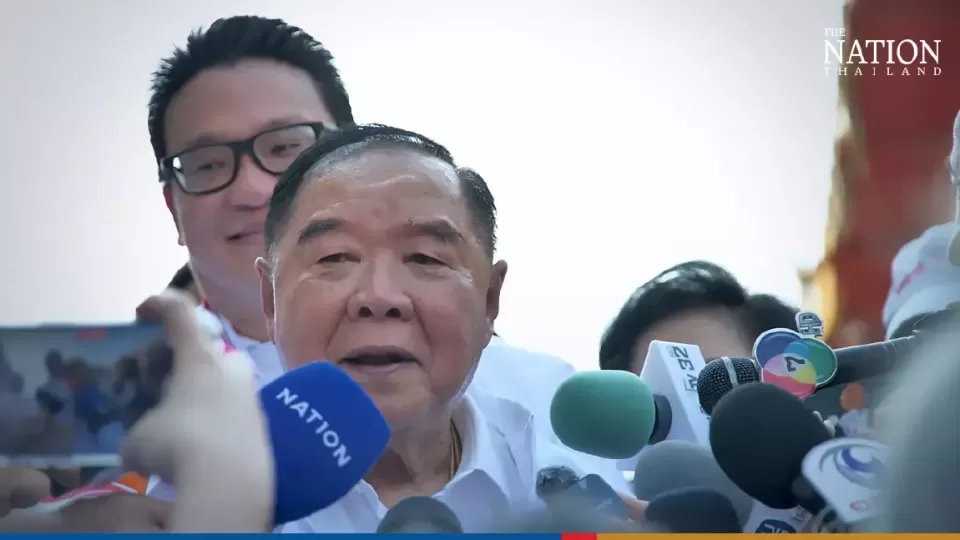April 20, 2023
BANGKOK – Still, once voters have their say, there may still be an opening for him as political parties and their leaders confront the messy challenges of forming a coalition government in Thailand.
On Wednesday, Prawit continued to wave an olive branch on Facebook, posting yet another conciliatory letter about moving beyond conflict to hope. It was part of a series of missives that at least one political rival – and many observers – say appear to have been written by a committee.
The positions political parties campaign on often shift after elections, the letter said, citing the aftermath of the 2019 election when previously coup-adverse political parties joined a coalition led by coup-makers.
Prawit’s latest Facebook letter was the ninth olive branch in which he expressed openness to working with political parties on both sides of Thailand’s divide.
The current poll leader, the Pheu Thai Party, has said it will not join a coalition that includes Prawit and incumbent Prime Minister General Prayut Chan-o-cha who led a coup against a Pheu Thai government in 2014.
Prawit noted that even the political party that wins the most seats will find it complex to form a government, and several factors have to be taken into account.
Although the party with the most seats should have the first opportunity to form a government, the final outcome will vary based on how political parties align themselves and which ones make the best offers to potential coalition partners, Prawit explained.
The Constitution will play a major role, Prawit said. It allows 250 appointed senators to join MPs to select a prime minister after the people have spoken.
After an election, politicians and political parties could end up joining a coalition they vowed they would have nothing to do with during the campaign, the general added.
Before the 2019 election, Democrat Party leader Abhisit Vejjajiva vowed not to support former coup leader General Prayut Chan-o-cha as the prime minister, but after the election the Democrats changed their mind. Abhisit stepped down and his party joined the coalition led by the Palang Pracharath Party, Prawit explained.
He cited Bhumjaithai Party leader Anutin Charnwirakul as another example. Prawit said Anutin vowed not to join the Prayut-led coalition but then changed his mind, explaining that he wanted Thailand run by an elected government rather than a coup-installed administration.
“All of this is not strange or weird in Thai politics. Those with a lot of political experience know well that this is normal in Thai politics,” Prawit explained.
His party will observe the post-election landscape before it decides how to form another government. It will use “prudent negotiations” and its platform to guide the process, he said.


